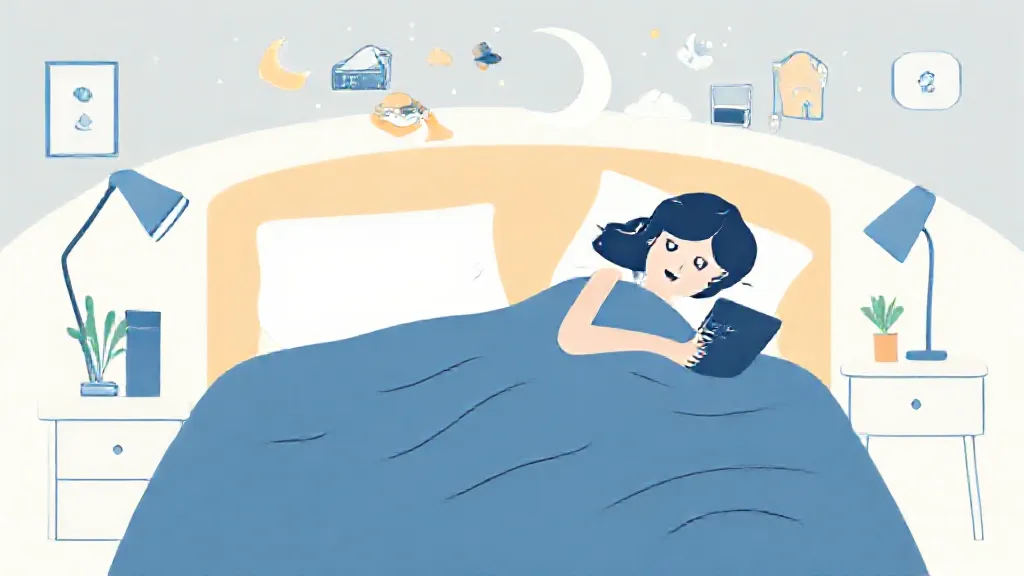Sleep disorders can affect anyone, even those who are otherwise healthy. Understanding the underlying causes of these disturbances is crucial for effective management and treatment. This article delves into the various factors that contribute to sleep disorders, offering insights into their complexity and the interplay of physical, psychological, and environmental influences.
The Role of Stress and Anxiety in Sleep Disorders
One of the primary contributors to sleep disorders among healthy individuals is stress and anxiety. The modern lifestyle, characterized by fast-paced living and constant connectivity, often leads to elevated stress levels. When the mind is preoccupied with worries or anxieties, it becomes challenging to relax and transition into sleep.
Chronic stress can result in insomnia, where individuals struggle to fall asleep or stay asleep, leading to a cycle of fatigue and increased stress.
The Impact of Diet and Nutrition on Sleep Quality
Diet and nutrition play a significant role in sleep quality. Certain foods and beverages, particularly those high in caffeine or sugar, can disrupt sleep patterns.
Moreover, deficiencies in essential nutrients, such as magnesium and vitamin D, have been linked to sleep disorders. A balanced diet that promotes overall health can help regulate sleep cycles and improve sleep quality. Understanding the relationship between what we eat and how we sleep is essential for maintaining healthy sleep patterns.
Physical Health Conditions and Sleep Disruptions
Even in otherwise healthy individuals, undiagnosed physical health conditions can lead to sleep disorders. Conditions such as sleep apnea, restless leg syndrome, or even chronic pain can significantly impact sleep quality. Recognizing these underlying health issues is vital for individuals experiencing sleep disturbances.
Regular health check-ups and open communication with healthcare providers can help identify and address these potential problems.
The Influence of Technology and Sleep Hygiene
In today's digital age, technology has become a double-edged sword for sleep. While it offers convenience and connectivity, excessive screen time, especially before bed, can interfere with the body's natural sleep-wake cycle.
The blue light emitted by screens can suppress melatonin production, making it harder to fall asleep. Practicing good sleep hygiene, such as establishing a bedtime routine, limiting screen time, and creating a conducive sleep environment, can mitigate these effects.
Psychological Factors: Depression and Sleep Disorders
Psychological conditions, particularly depression, are closely linked to sleep disorders.
Individuals with depression often experience changes in their sleep patterns, including insomnia or hypersomnia. The relationship between sleep and mental health is bidirectional; poor sleep can exacerbate depressive symptoms, while depression can lead to sleep disturbances. Addressing mental health through therapy or medication can significantly improve sleep quality.
Environmental Factors Affecting Sleep
The environment in which one sleeps can greatly influence sleep quality. Factors such as noise, light, and temperature can disrupt sleep. For instance, a noisy neighborhood or an uncomfortable mattress can lead to frequent awakenings throughout the night.
Creating a sleep-friendly environment that minimizes disruptions is crucial for achieving restful sleep. Simple changes, such as using blackout curtains or white noise machines, can make a significant difference.
Lifestyle Choices and Their Consequences
Lifestyle choices, including exercise habits and sleep schedules, also play a critical role in sleep quality.
Regular physical activity has been shown to promote better sleep, while irregular sleep patterns can lead to sleep disorders. Individuals who frequently alter their sleep schedules, such as shift workers, may find it challenging to maintain a consistent sleep routine. Establishing a regular sleep-wake cycle and incorporating physical activity into daily routines can help improve overall sleep health.
The Importance of Seeking Professional Help
If sleep disturbances persist despite making lifestyle changes, it is essential to seek professional help. Sleep disorders can have significant health implications if left untreated. Healthcare professionals can conduct evaluations, recommend sleep studies, and provide tailored treatment plans.
Early intervention can prevent the progression of sleep disorders and improve overall well-being, allowing individuals to regain control over their sleep.
